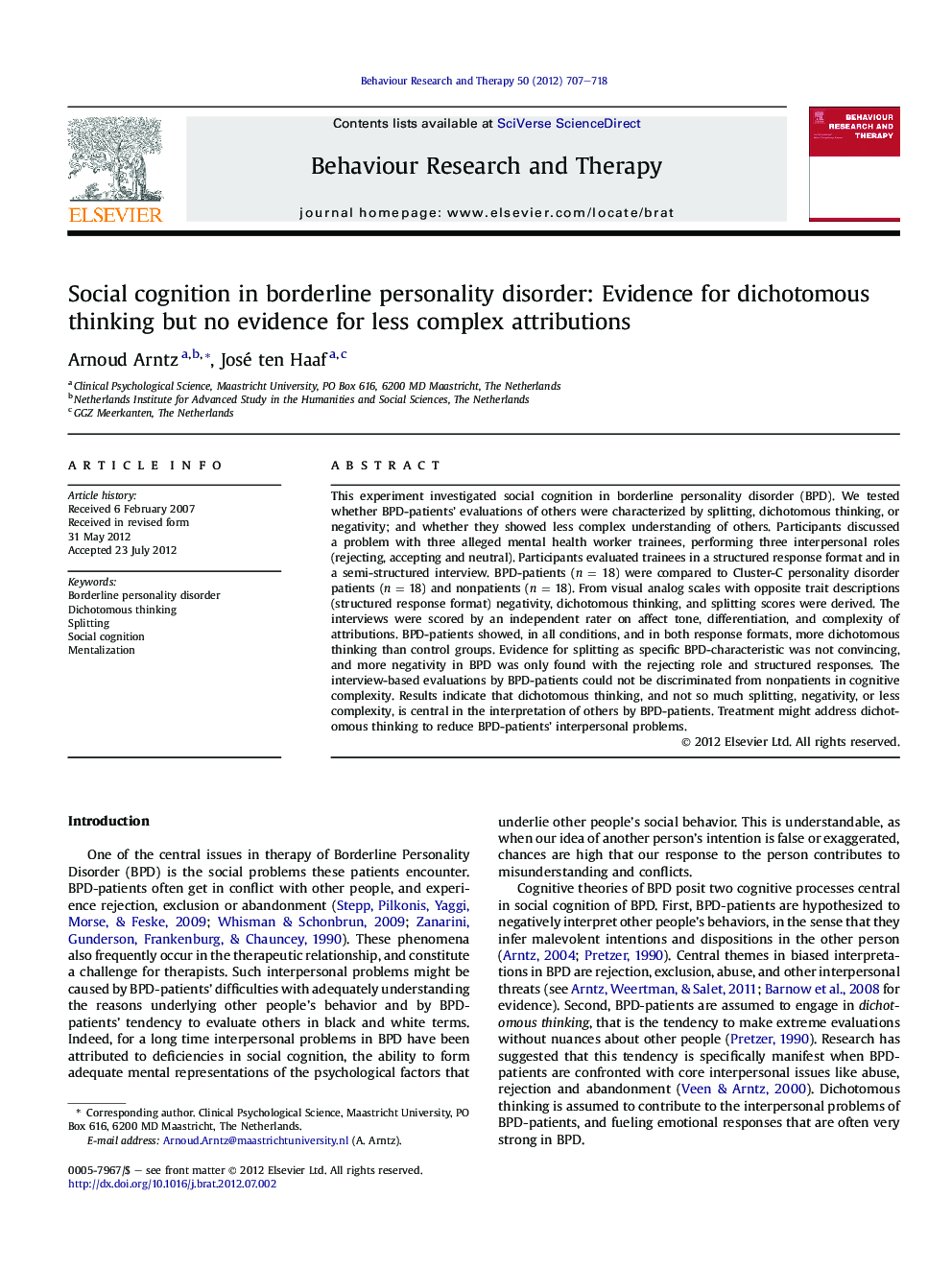| کد مقاله | کد نشریه | سال انتشار | مقاله انگلیسی | نسخه تمام متن |
|---|---|---|---|---|
| 901967 | 916100 | 2012 | 12 صفحه PDF | دانلود رایگان |

This experiment investigated social cognition in borderline personality disorder (BPD). We tested whether BPD-patients' evaluations of others were characterized by splitting, dichotomous thinking, or negativity; and whether they showed less complex understanding of others. Participants discussed a problem with three alleged mental health worker trainees, performing three interpersonal roles (rejecting, accepting and neutral). Participants evaluated trainees in a structured response format and in a semi-structured interview. BPD-patients (n = 18) were compared to Cluster-C personality disorder patients (n = 18) and nonpatients (n = 18). From visual analog scales with opposite trait descriptions (structured response format) negativity, dichotomous thinking, and splitting scores were derived. The interviews were scored by an independent rater on affect tone, differentiation, and complexity of attributions. BPD-patients showed, in all conditions, and in both response formats, more dichotomous thinking than control groups. Evidence for splitting as specific BPD-characteristic was not convincing, and more negativity in BPD was only found with the rejecting role and structured responses. The interview-based evaluations by BPD-patients could not be discriminated from nonpatients in cognitive complexity. Results indicate that dichotomous thinking, and not so much splitting, negativity, or less complexity, is central in the interpretation of others by BPD-patients. Treatment might address dichotomous thinking to reduce BPD-patients' interpersonal problems.
► Borderline Personality Disorder (BPD) is characterized by interpersonal problems.
► What characteristics of social cognition might cause these problems?
► We assessed how participants evaluated rejecting, accepting and neutral trainees.
► Compared to controls, BPD was not characterized by less complex understanding of others.
► But BPD was especially characterized by more dichotomous thinking.
Journal: Behaviour Research and Therapy - Volume 50, Issue 11, November 2012, Pages 707–718